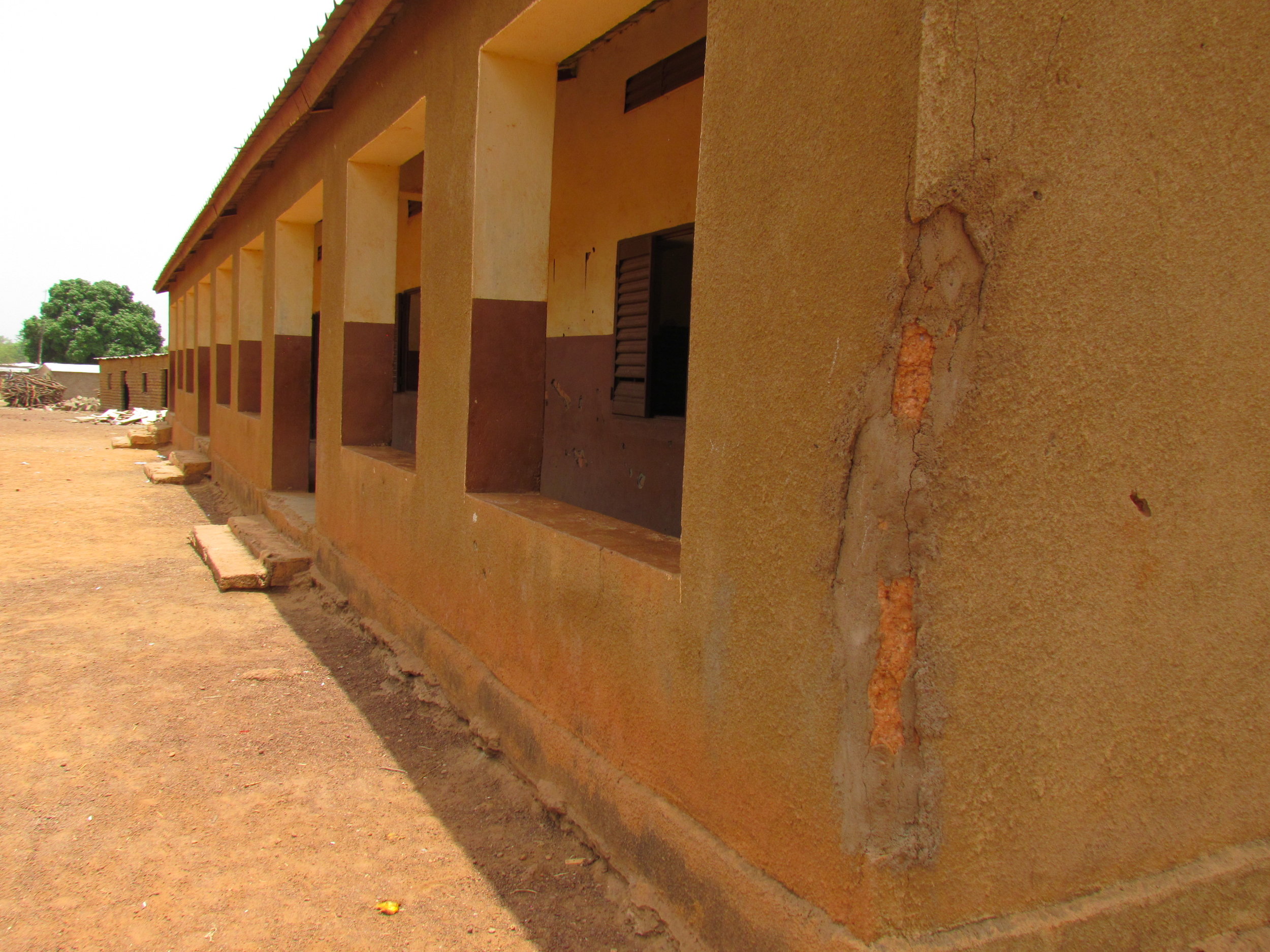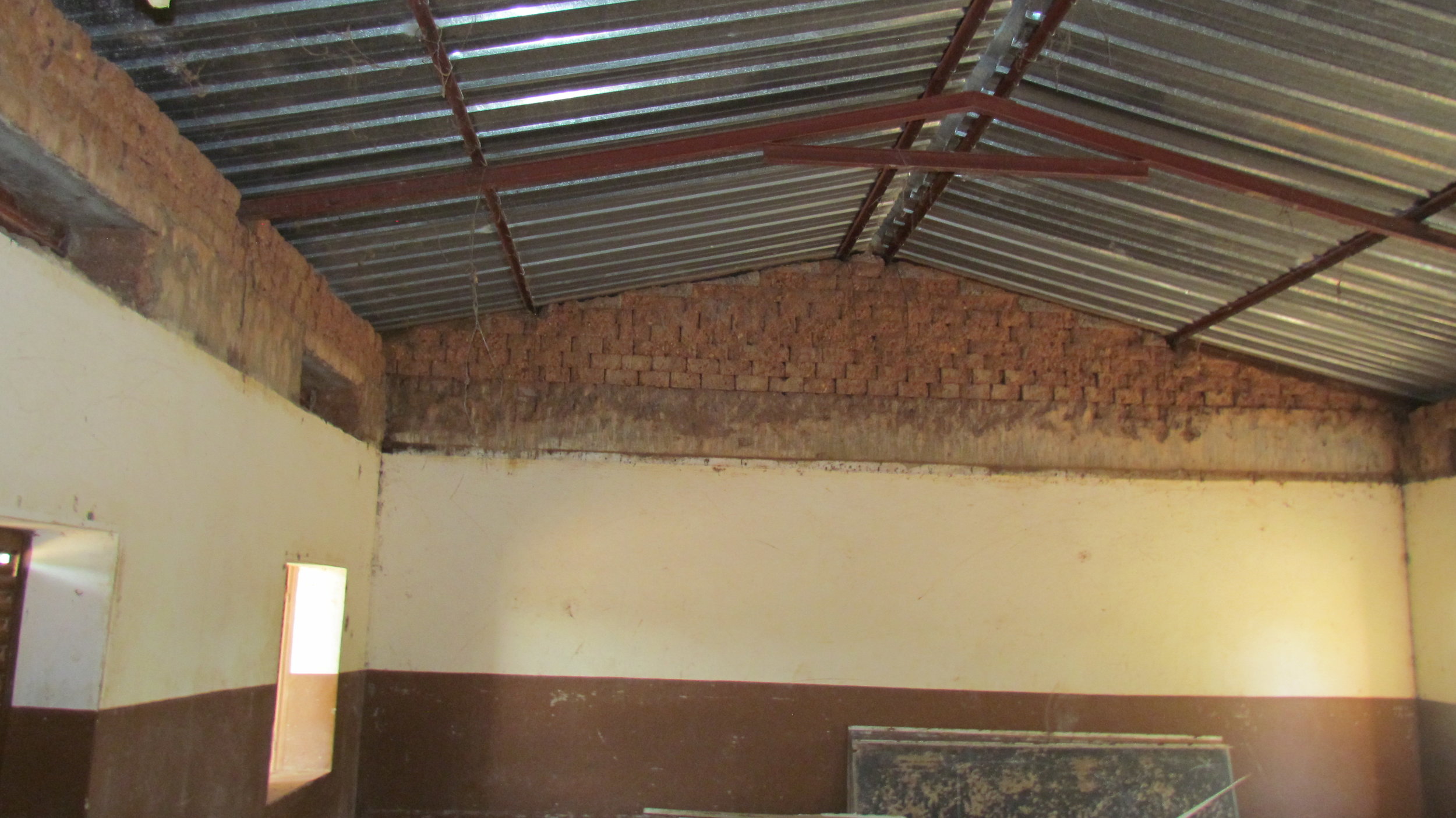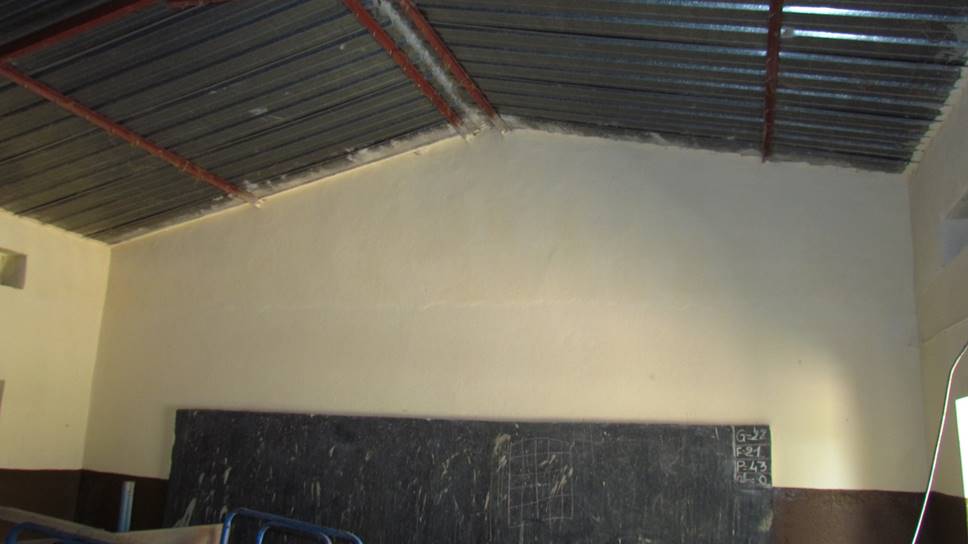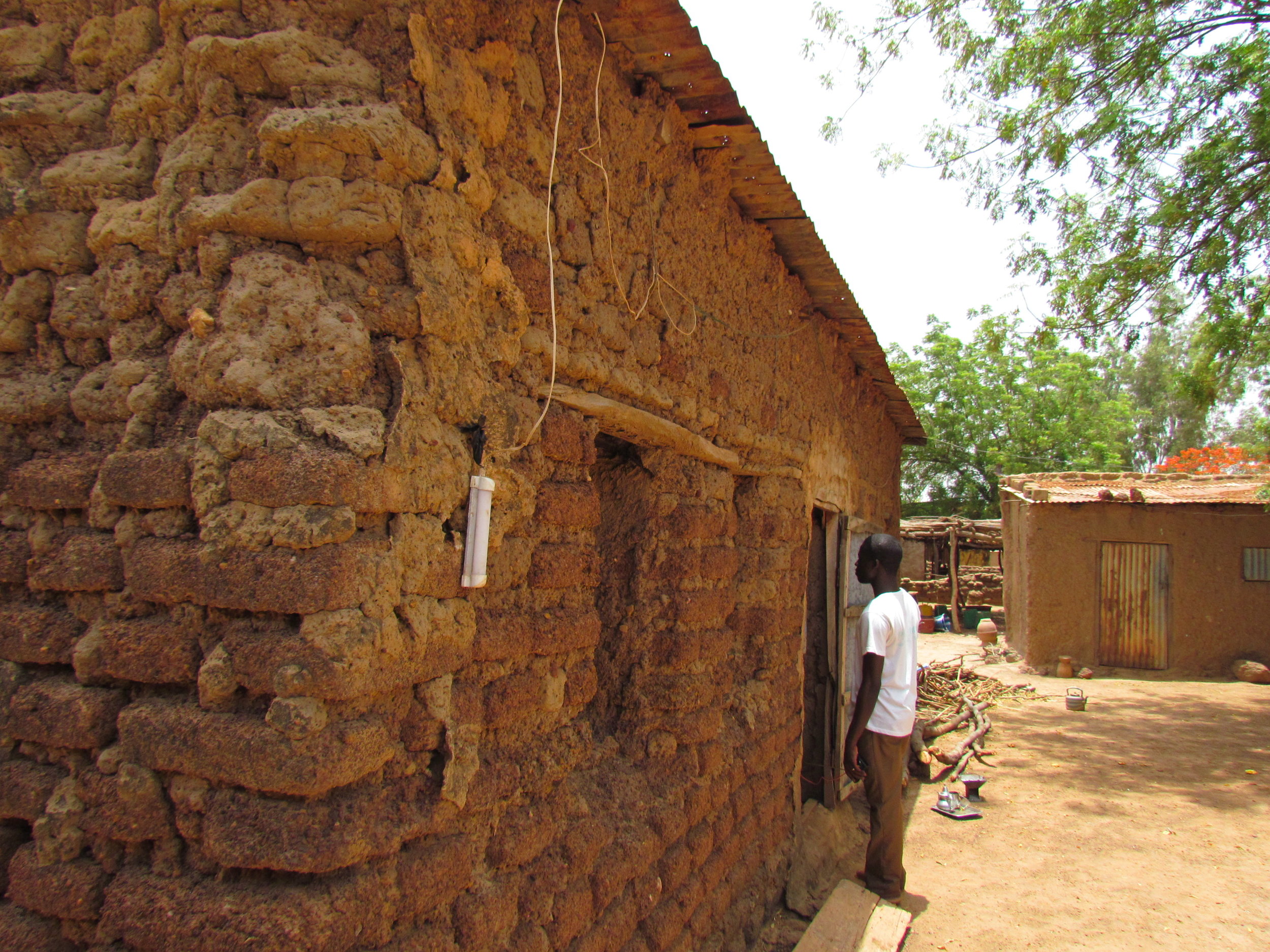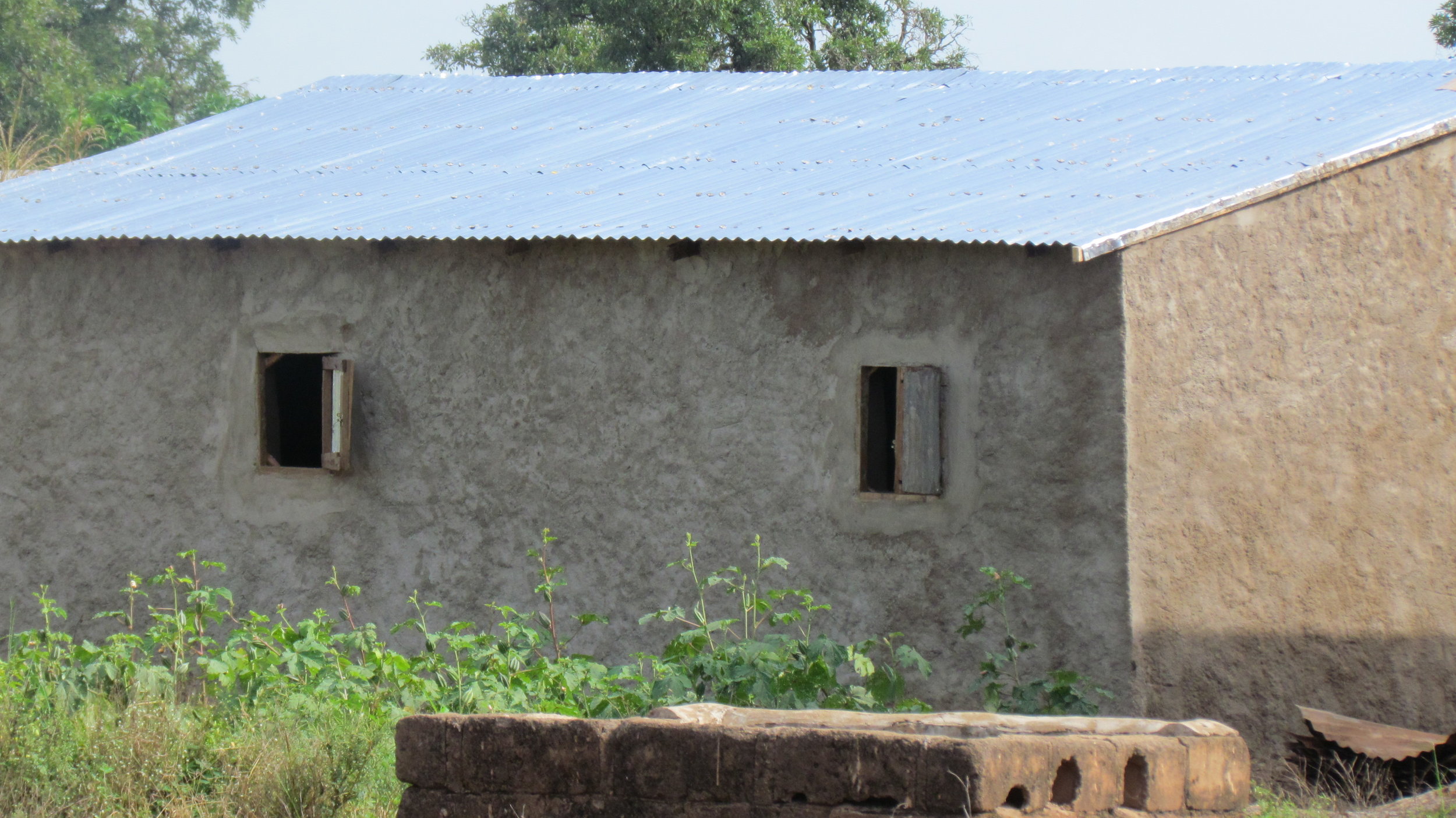By Alou Doumbia, Field Director
Mali Rising Foundation is committed to maintaining a good learning environment for all students attending our schools. Sometimes this commitment translates into hard and dirty maintenance work, in partnership with villages.
Our older schools were built with mud bricks, and these structures can develop cracks. We’ve also found bats love to make their home between ceilings of the classrooms and the roof. To keep the schools in good condition, we partner with our supporters and the village to raise funds for repairs. The work consists of reinforcing corners and other weak areas with iron bars, removing dropped ceiling tiles (in old-fashioned idea we no longer do in new schools), plastering the space between the ceilings and the roof, and the refreshing of the interior painting.
The fresh new look (and the better smell after the bats have gone!) gives a new, more enjoyable framework which gives students the courage to study well inside.
Each year we conduct maintenance work like this at several schools. Six schools have benefited from these works so far, and the students of these schools feel great in their new classrooms. These works continue in parallel with the construction of new schools.
Rehabilitated schools present a pleasant new setting that encourages students and teachers. While we hire contractors to do the technical repairs (for safety reasons!), the village contributes by removing the ceilings and repairing the doors and windows themselves.
Mali Rising does more than repair the classrooms, we also take into account the teachers’ housing. When you visit a teacher's home in the village, you get an idea of how much trouble they have to teach the students — a better home is usually a happier, more successful teacher.
One of the reasons for the lack of teachers in rural schools lake ours is the lack of secure, comfortable housing where the minimum security is present. Often the house roofs are old, doors and windows do not close, and mud and insects are inside. This situation makes some teachers prefer to travel long distances to sleep in a big town and return to teach the next day. Some teachers leave their families in town to live as a single person in the village for safety because during the rainy season their houses let the rainwater penetrate inside.
Small repairs such as a water-tight roof or cementing a mud floor can provide huge relief for our hardworking teachers. We’ve experimented with this type of support in several of our villages, and find that for a small investment you can have a much happier teacher.

